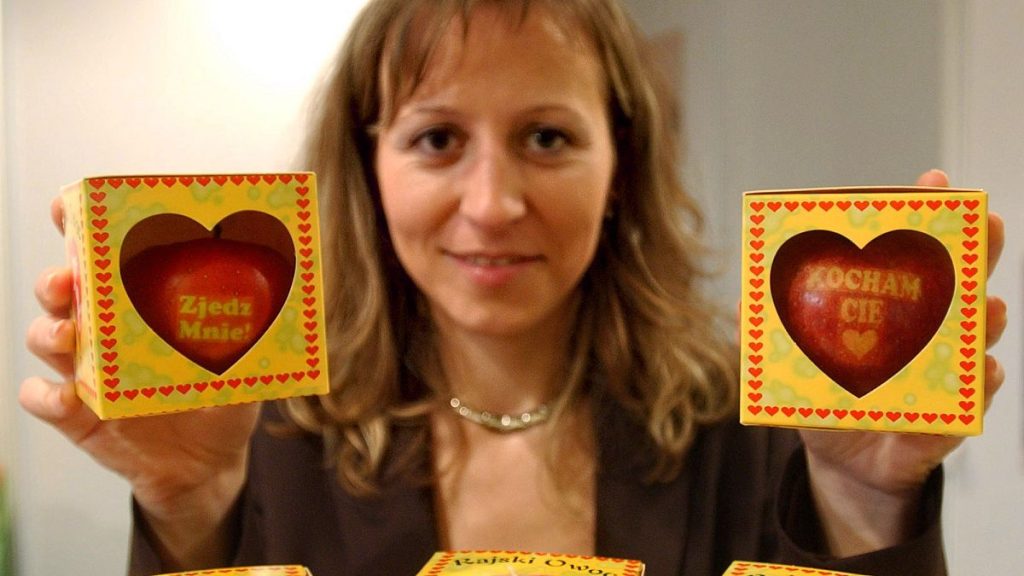Poland has chosen the humble apple as a symbolic representation of its six-month presidency of the Council of the European Union. This decision, seemingly simple, carries profound cultural, economic, and historical significance for the nation. The apple, a staple of Polish agriculture and a source of national pride, will be prominently featured at official events in both Warsaw and Brussels, offering attendees a taste of Poland’s rich agricultural heritage. This choice echoes Poland’s 2011 EU presidency, where the equally abundant Polish strawberry took center stage. The selection of a national product as a symbol underscores the importance of agriculture to Poland’s identity and economy.
The tradition of adopting a symbol during the EU presidency is a well-established practice, with each presiding nation selecting an emblem that reflects its unique character. Past symbols have ranged from Estonia’s futuristic robot mascot to Belgium’s ceremonial chocolate logo, and even Hungary’s politically charged slogan. Poland’s decision to showcase the apple stands in contrast to these more abstract or manufactured symbols, opting for a tangible representation of its agricultural prowess and cultural heritage. The apple, a product deeply rooted in Polish soil and history, serves as a potent reminder of the nation’s connection to the land and its people.
The selection of the apple is not merely symbolic; it also highlights the economic importance of apple production in Poland. As Europe’s leading apple producer, Poland boasts an annual output of 4 million tonnes, a testament to the industry’s scale and efficiency. The high quality of Polish apples, particularly those from the Grojec district, is internationally recognized, earning them protected geographical indication status within the EU. This recognition underscores the unique characteristics and superior quality of these apples, further solidifying Poland’s position as a major player in the global apple market.
The apple’s significance in Poland extends beyond its economic and agricultural value. In 2014, when Russia imposed a ban on Polish fruit and vegetable imports, including apples, in retaliation for EU sanctions related to the Crimean conflict, the apple became a symbol of resistance and national unity. Poles rallied around the fruit, launching social media campaigns with hashtags like #jedzjabłka (“Eat Apples”) and #EatApplesToAnnoyPutin. This grassroots movement transformed the apple into a symbol of defiance against external pressures and a powerful expression of national pride.
Poland’s choice of the apple as a symbol during its EU presidency resonates with this historical context, showcasing not only the fruit’s economic importance but also its symbolic power. The apple represents resilience, national unity, and the ability to overcome challenges. By showcasing this humble fruit, Poland is sending a message of strength, determination, and unwavering commitment to its values. The apple, once a simple agricultural product, has become a powerful emblem of Polish identity and resilience.
This year, the apple’s prominence during Poland’s EU presidency serves as a reminder of its multifaceted significance. It is a symbol of Poland’s agricultural strength, a testament to its resilience in the face of adversity, and a representation of national unity. By sharing this emblematic fruit with attendees at EU events, Poland is offering a taste of its rich history, cultural heritage, and unwavering determination. The apple, a symbol both humble and powerful, encapsulates the spirit of Poland and its contribution to the European Union.














